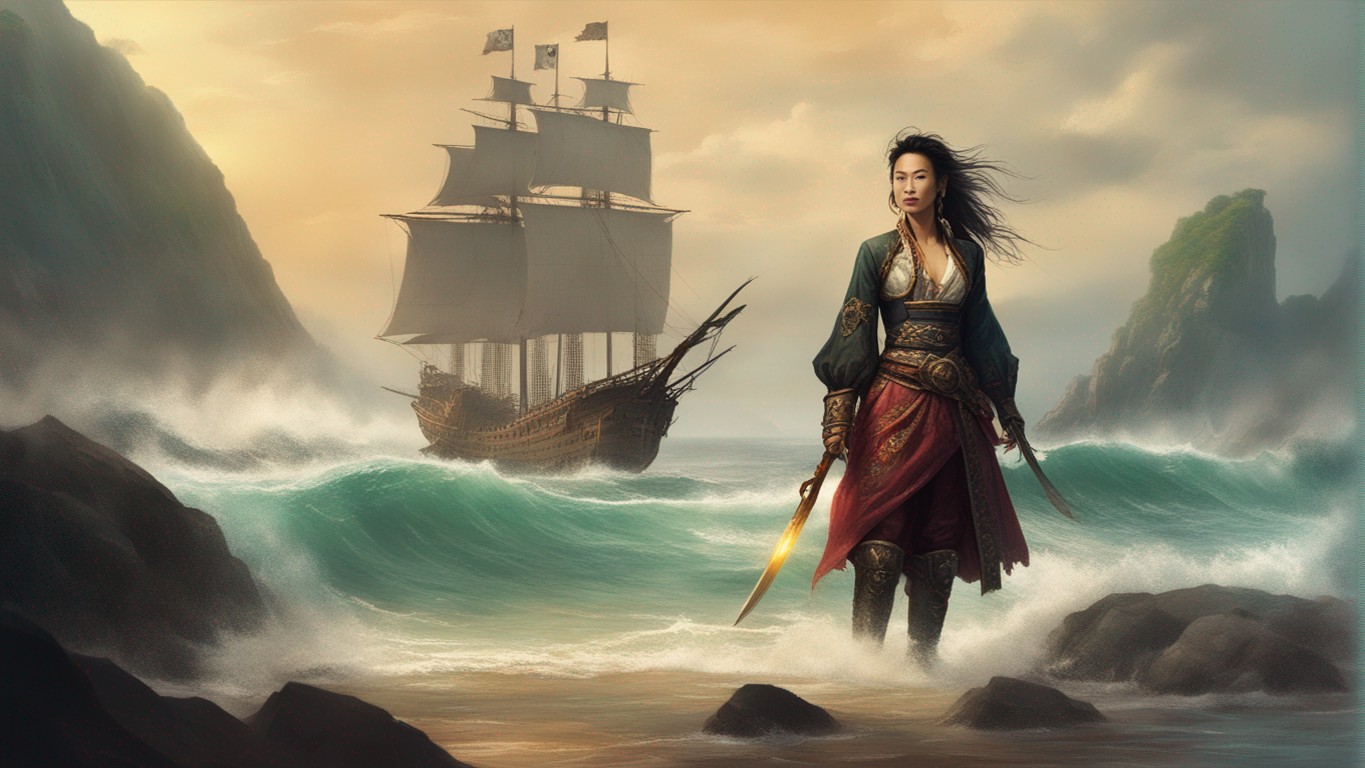The Legend Begins: The Mysterious Origins of Ching Shih
While the early life of Ching Shih remains somewhat of a mystery, it’s believed she was born in 1775 in Guangdong, China. Her humble beginnings as a fisherman’s daughter set a stark backdrop to her eventual rise to infamy. A stint in a Canton brothel exposed her to the complexities of social hierarchies and power dynamics, skills she would later employ with remarkable finesse.
The Marriage to Cheng I: A Strategic Alliance that Changed the Seas
Ching Shih’s marriage to Cheng I was far from an ordinary union. It is said that Cheng I was captivated by her intellect as much as her beauty. Together, they formed a tactical partnership that helped consolidate a small fleet of pirate ships into a formidable force. Ching Shih’s influence in decision-making and strategy was evident even during these early days.
The Red Flag Fleet: The Architectural Genius Behind a Maritime Empire
Upon Cheng I’s sudden death, Ching Shih didn’t waste time mourning. Instead, she seized the reins of the Red Flag Fleet and swiftly expanded it. By combining strict military discipline, meritocratic promotions, and innovative naval tactics, she managed to amass a fleet that some accounts say included more than 300 ships and up to 40,000 pirates. Her influence extended beyond mere numbers; she essentially built a floating economy complete with taxation and trade regulations.
A Strategic Genius: Decisive Victories and Uneasy Alliances
Ching Shih’s prowess wasn’t just in expanding her fleet but in maintaining it. Her strategic ingenuity led her to multiple victories against the Portuguese navy, Qing dynasty’s formidable fleet, and even the British Empire. Her alliances were as calculated as her attacks; she frequently partnered with other pirate clans for mutual benefit, turning would-be rivals into useful allies.
The Pirate Code: A Constitution on the High Seas
Perhaps one of the cornerstones of her success was the pirate code she rigorously enforced. This wasn’t just a set of rules; it was a constitution of sorts that governed everything from the equitable distribution of loot to marital conduct among her crew. Punishments for violations like rape and theft were severe, often involving death, thereby creating a high-stakes environment that demanded loyalty and discipline from her crew.
Negotiating with Empires: The Art of Diplomacy and Survival
When the Qing dynasty and foreign naval forces started closing in, Ching Shih made an unprecedented decision: to negotiate a surrender. With the help of Chinese officials, she brokered a deal that allowed her and most of her fleet to retire from piracy, keeping their loot, and integrate back into society. This was not only a tactical retreat but also a masterstroke of diplomacy and survival.
The Enigmatic Final Years: Reinventing Identity
Having secured a pardon, Ching Shih retired but wasn’t content with a quiet life. She invested her accumulated wealth into a gambling house and participated in the opium trade. Until her death in 1844, she remained an influential figure in her community, leaving behind a legacy of entrepreneurship that rivaled her days on the high seas.
A Feminist Icon: Breaking Barriers in a Man’s World
Ching Shih’s story has been celebrated by feminists and scholars as an early example of women breaking through patriarchal barriers. Her ability to command thousands of men at a time when women had very limited opportunities is remarkable. Her legacy thus extends beyond piracy and enters the realm of social justice, as she challenges long-standing gender norms and inspires new generations.
A Lasting Impact that Transcends Time and Geography
In life and death, Ching Shih has transcended the realm of folklore to become a subject of academic inquiry, military studies, and cultural dialogues. Her calculated actions, fierce leadership, and lasting impact on naval warfare and gender roles ensure that her story is not just a tale of high-sea adventures but a significant chapter in global history.
